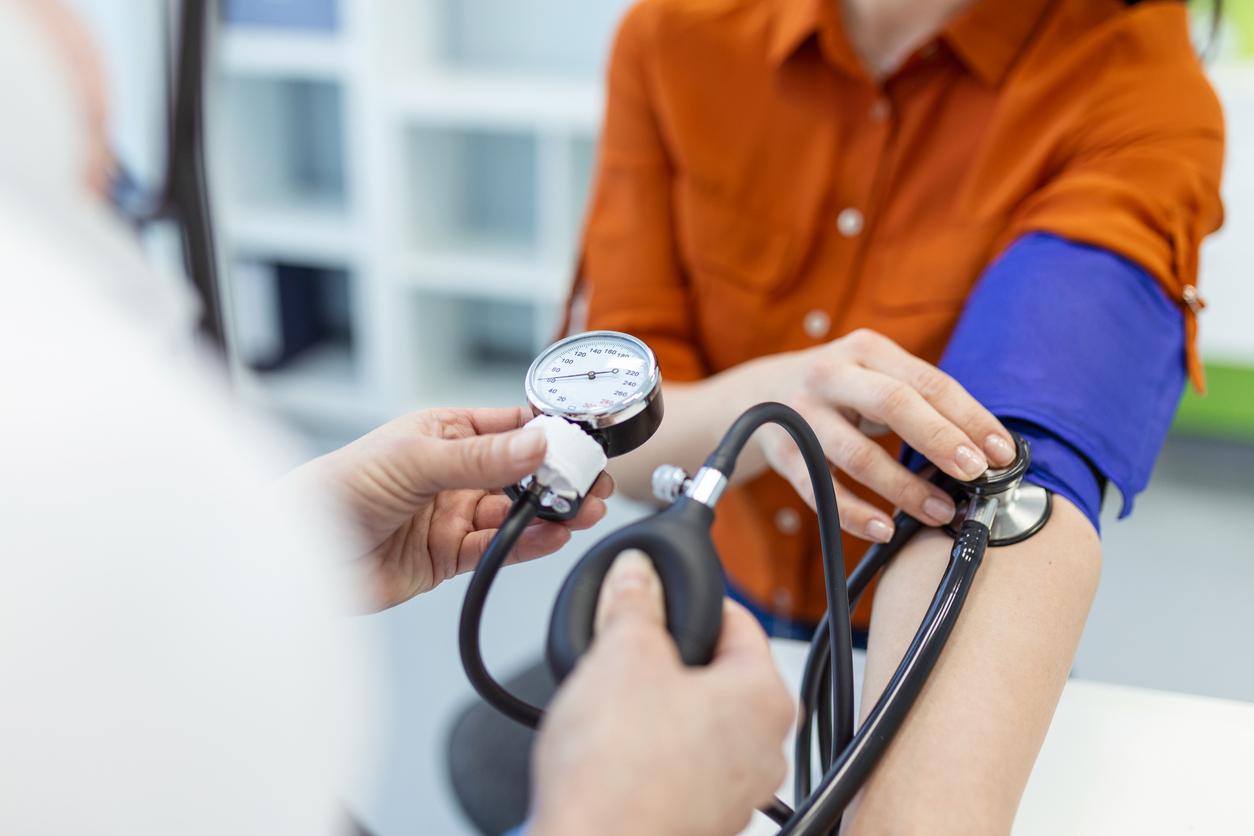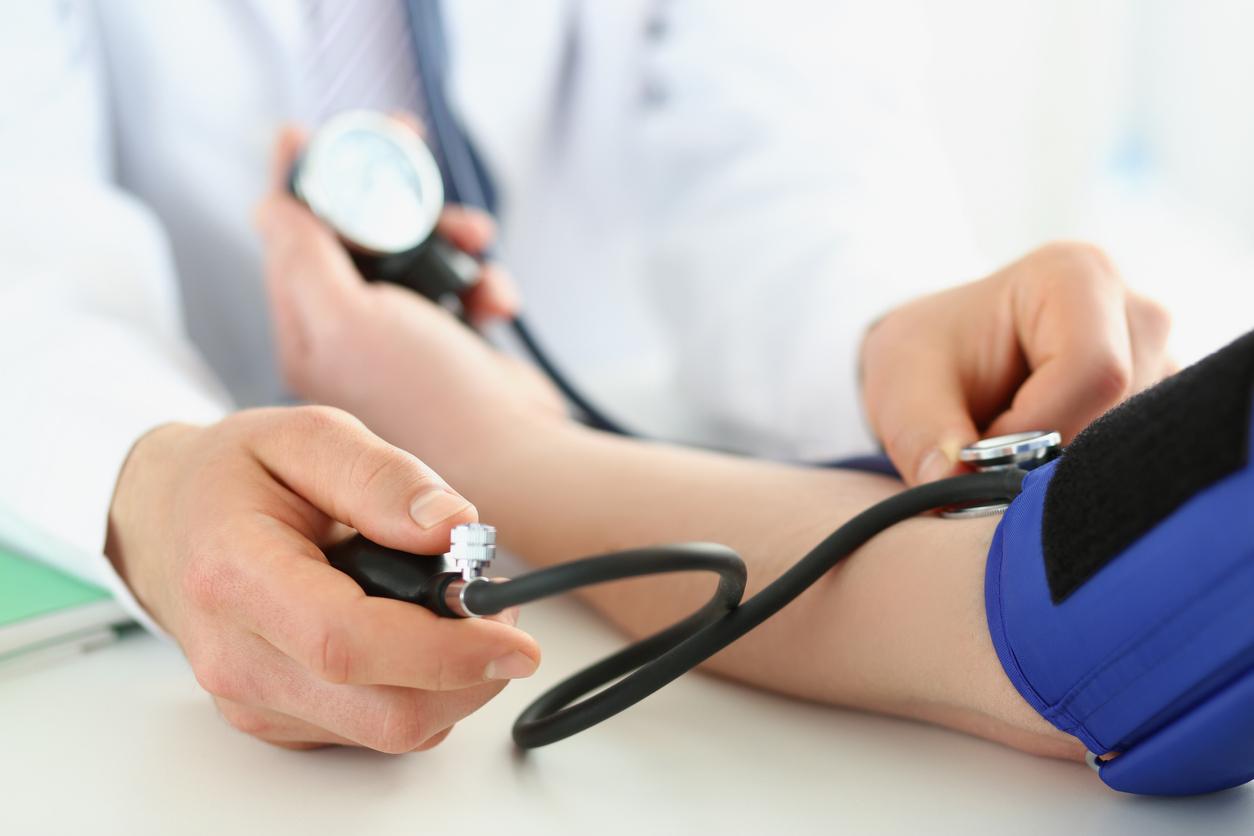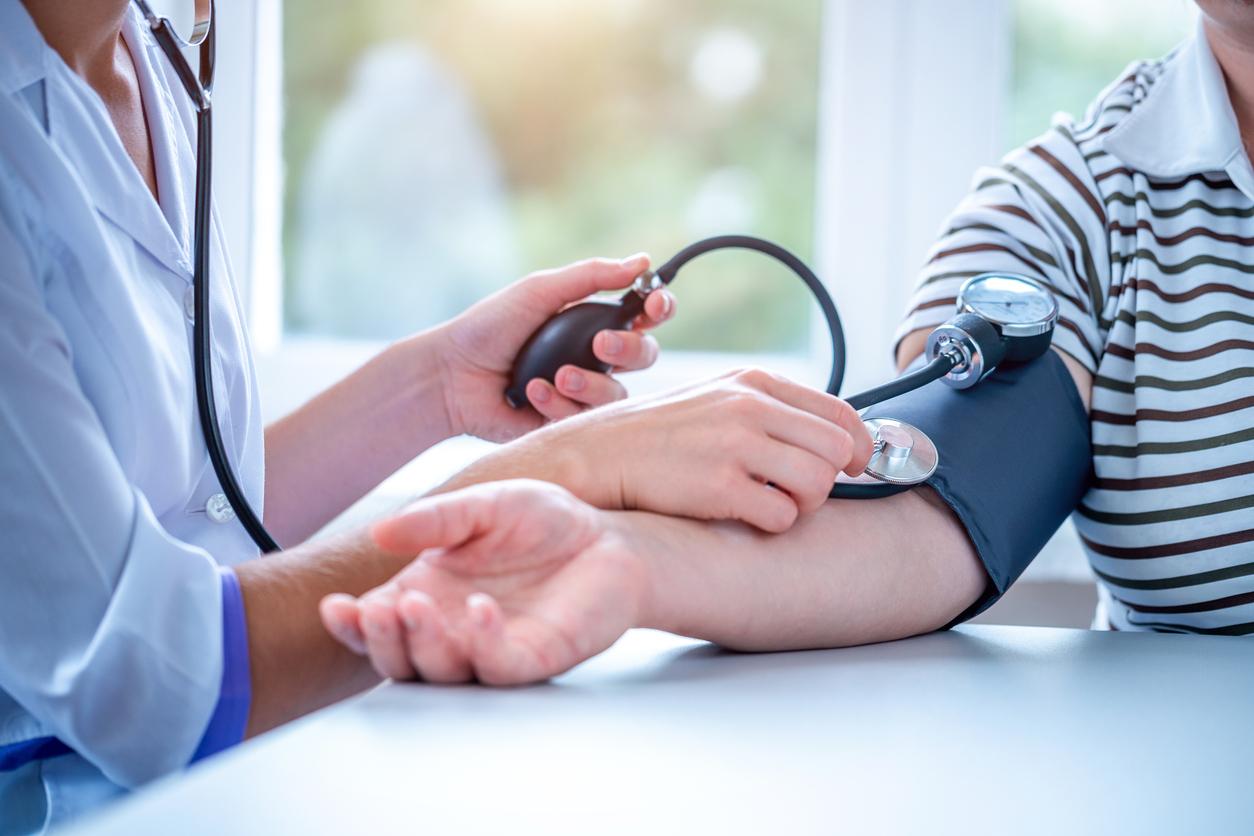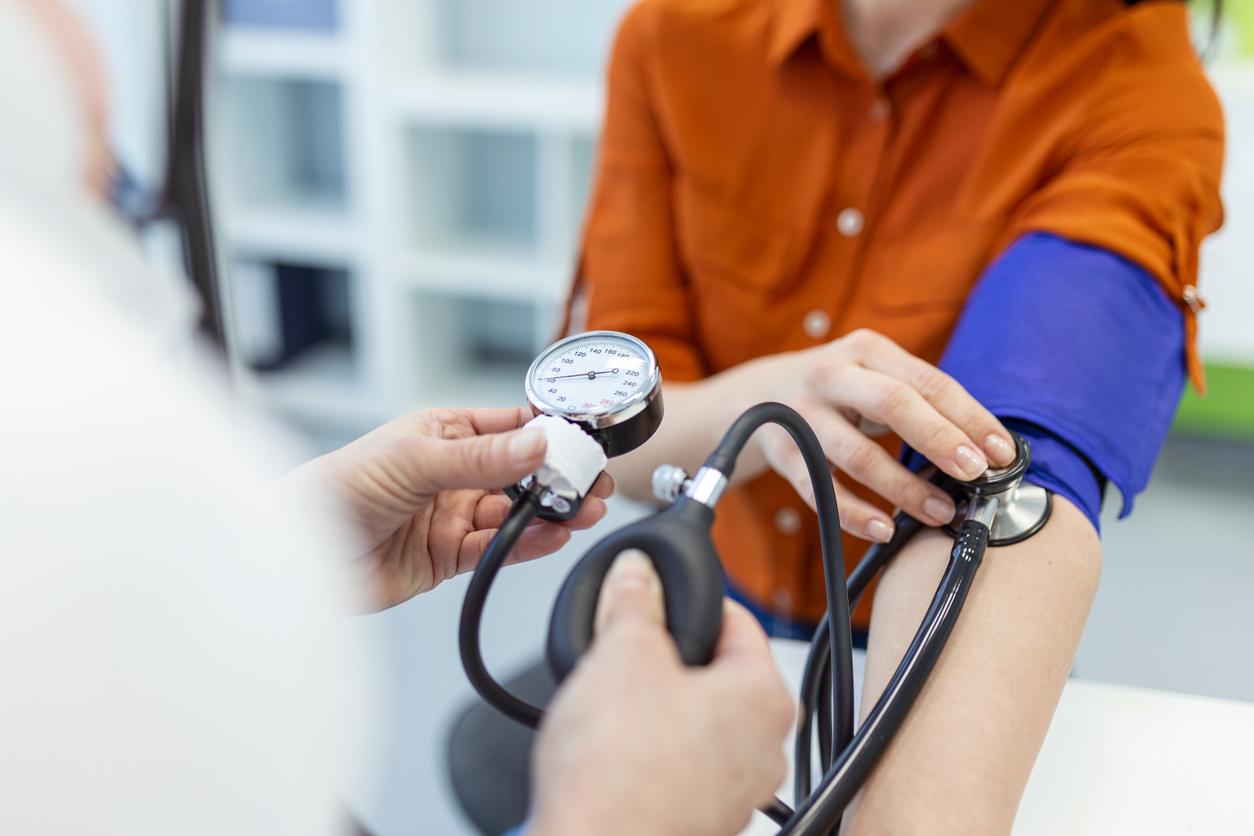In the treatment of moderate to severe hypertension, ultrasound endovascular renal denervation has been shown to be effective. Explanations.
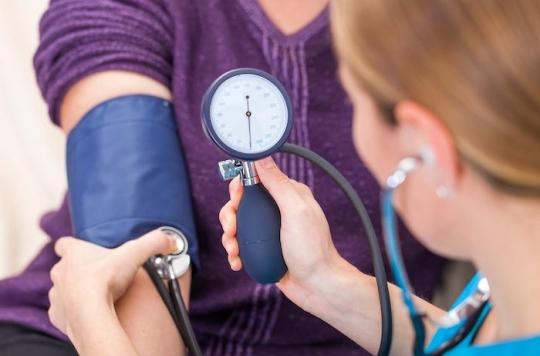
While previous studies indicate that radiofrequency endovascular renal denervation reduces blood pressure in untreated patients with moderate hypertension, scientists wanted to know if ultrasound endovascular renal denervation could achieve the same result.
The test “Endovascular ultrasound renal denervation to treat hypertension (RADIANCE-HTN SOLO): a multicentre, international, single-blind, randomized, sham-controlled trial” has been published in The Lancet.
Combined systolic and diastolic hypertension
The cohort was made up of French and American patients. The subjects, all with combined systolic and diastolic hypertension, were between 18 and 75 years of age. They could join the study if they had an ambulatory blood pressure greater than or equal to 135/85 mmHg and less than 170/105 mmHg after a four-week interruption of two antihypertensive drugs at most.
Between March 28, 2016 and December 28, 2017, 803 patients were screened. 146 patients were randomized to undergo renal denervation or sham intervention. Patients were not to take antihypertensive drugs during the two-month follow-up.
Reduction of ambulatory systolic blood pressure
Result: the reduction in systolic blood pressure was greater with denervation than with the sham procedure. Specifically, lUltrasound endovascular denervation reduced blood pressure from 6.3 mmHg to 8.5 mmHg on average in moderate to severe hypertensive patients without concurrent drug therapy. No major adverse effects were reported in the two groups.
“Compared to sham intervention, renal denervation by endovascular ultrasound reduced ambulatory blood pressure at two months in patients with combined systolic and diastolic hypertension, in the absence of drugs,” the researchers conclude.
Ultrasound endovascular denervation is a milder alternative to radiofrequency endovascular renal denervation, which therefore opens the door to an alternative treatment to antihypertensive drugs.
A silent and unrecognized disease
Today, arterial hypertension (HTA) affects 15 million people in France, or nearly one in three adults. According to the Esteban study recently published by Public Health France, 36% of adult men are now hypertensive, against 25% of women. 60% of people over 65 suffer from this pathology; figures which climb to 80% among the over 80s.
Disturbing statistics, especially when we know that many French people suffer from hypertension without knowing it. If more than 84% of people declared to Public Health France having had a blood pressure measurement in the year preceding their health examination, only 1 in 2 (55%) knew of their hypertension among hypertensive people. This proportion was higher for women (62.9%) than for men (50.1%). And among hypertensive people declaring to be aware of their hypertension, nearly 30% were not treated with an anti-hypertensive drug.
Major risk factor for cardiovascular complications
However, arterial hypertension constitutes a major risk factor for cardiovascular disease (coronary insufficiency, stroke, renal failure, heart failure, arterial aneurysm, aortic dissection, arrhythmia, dementia, etc.) …
Professionals even call it the “silent slayer”, adds Professor Claire Mounier-Vehier, cardiologist and president of the French Federation of Cardiology, before continuing: “the disease is most often silent but can manifest itself by a set of non-specific symptoms: fatigue, morning headaches, Dizziness, flies in the eyes, ringing in the ears, palpitations, trouble concentrating or a feeling of tightness in the chest are all signs of the disease.
These are not specific symptoms, but these signs, when combined, should alert and push to consult your doctor or even pharmacist, for a screening test. However, most people do not pay attention and do not imagine that their symptoms are linked to hypertension, which explains why many hypertensive people have not yet been diagnosed “.
.








